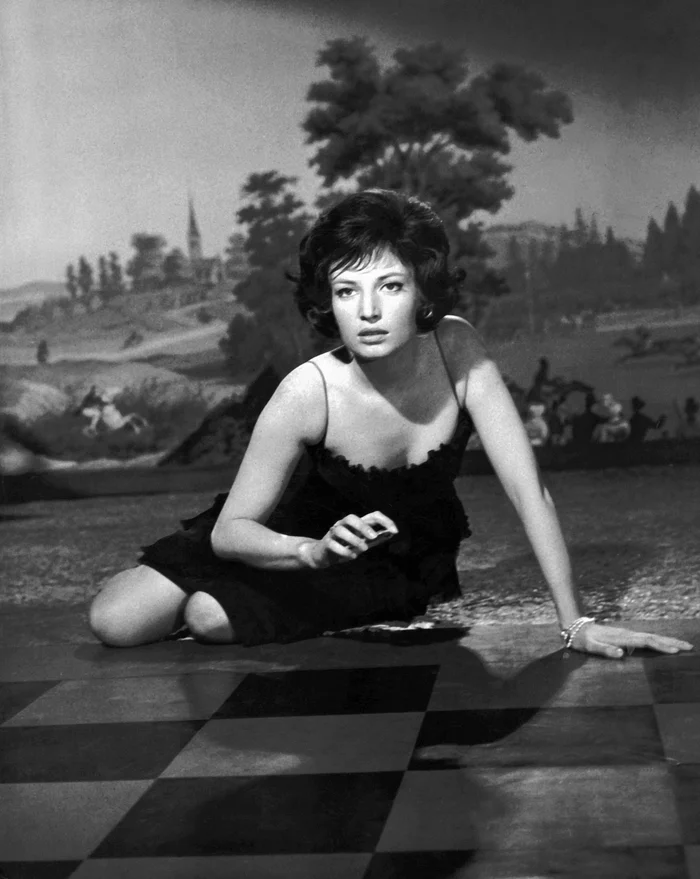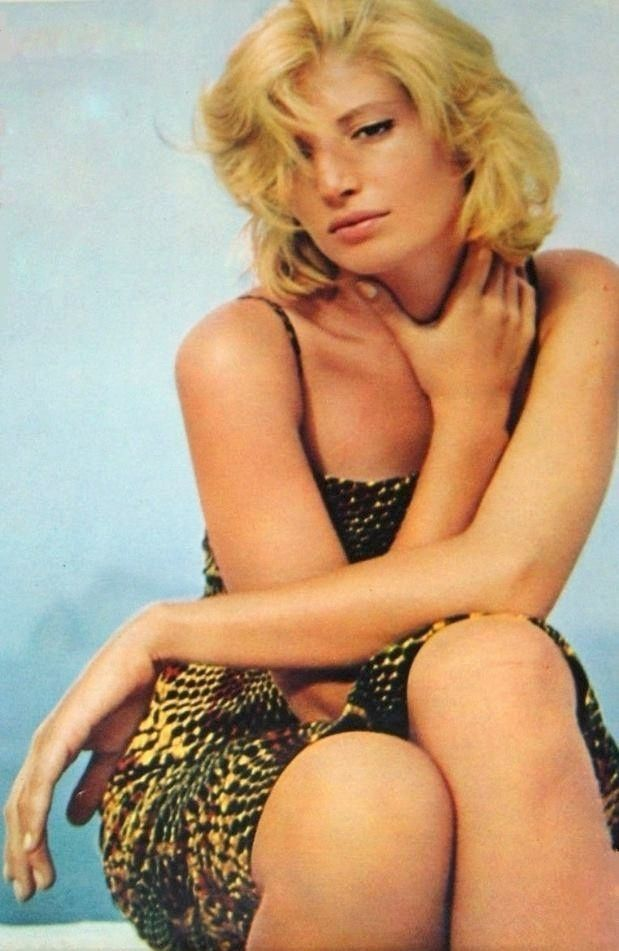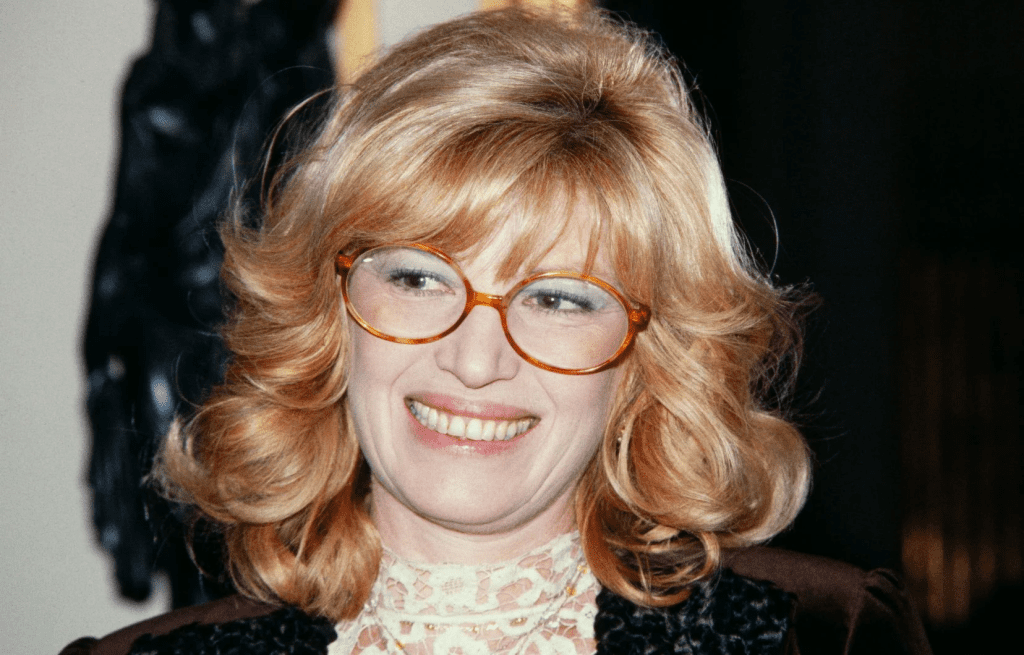Monica Vitti, a legendary name etched in the golden history of cinema, captivated the world with her grace, beauty, and extraordinary talent. Known for her ability to express profound and mysterious emotions with minimal dialogue, she rose as one of the most influential actresses of the 1960s. Her unforgettable presence on screen and undeniable charm earned her a place among cinema’s greatest icons, leaving behind a legacy that continues to inspire generations.

The Muse of Michelangelo Antonioni: A Creative Partnership
Monica Vitti’s rise to fame was intertwined with her collaboration with renowned Italian director Michelangelo Antonioni. It all began when Antonioni discovered Vitti’s rare talent and unconventional beauty, seeing her as the ideal embodiment of his cinematic vision. Together, they created films that redefined European cinema, often exploring themes of existential alienation and human disconnection.
Their iconic collaboration started with “L’Avventura” (1960), a groundbreaking film that marked a turning point in cinema. Monica played Claudia, a woman searching for her missing friend, and her performance was both subtle and mesmerizing. The film’s slow pacing and symbolic imagery showcased Monica’s ability to convey deep emotions without relying on heavy dialogue.
The partnership continued with “La Notte” (1961) and “L’Eclisse” (1962), where her performances alongside Marcello Mastroianni and Alain Delon further cemented her status as a cinematic powerhouse. In these films, Vitti brought Antonioni’s complex characters to life with her haunting expressions and emotional depth.
Their final collaboration, “The Red Desert” (1964), further demonstrated her range. Vitti portrayed a woman struggling with mental illness, delivering a raw and powerful performance that resonated with audiences worldwide.
Breaking Boundaries: Transition to Comedy and Mainstream Success
While Vitti’s collaborations with Antonioni defined her as a serious, dramatic actress, she proved her versatility by stepping into the realm of comedy. In the late 1960s, Monica embraced lighter roles that showcased her wit, charm, and impeccable comedic timing.
Her standout performance in “The Girl with the Pistol” (1968) was a turning point, proving she could excel in comedic roles just as effortlessly as she did in dramatic ones. The film earned her international acclaim and further broadened her appeal to audiences worldwide.
This transition was a bold move, breaking the stereotype that actresses known for dramatic roles couldn’t succeed in comedy. Vitti became a symbol of versatility, shining in genres ranging from art-house cinema to mainstream comedy.

An Icon of Style and Sophistication
Monica Vitti’s influence extended beyond the silver screen—she became a fashion icon of the 1960s, setting trends that defined an era. With her voluminous blonde hair, bold eyeliner, and sophisticated wardrobe, Vitti embodied Italian glamour at its finest. Her effortlessly chic style and magnetic presence made her a muse for fashion designers and photographers alike.
Whether on screen or off, Monica’s fashion choices were a reflection of her personality—bold, confident, and timeless. Her iconic looks continue to inspire fashion enthusiasts to this day, solidifying her status as a cultural and style icon.
A Complex Love Story: Michelangelo Antonioni and Monica Vitti
Behind the camera, Monica’s relationship with Michelangelo Antonioni was as captivating as their films. Their love affair, spanning over a decade, was marked by passion, creativity, and inevitable heartbreak. Antonioni was drawn to Monica’s uniqueness, praising her “penetrating gaze” and ethereal beauty.

However, their relationship was far from perfect. On set, Antonioni was known for his demanding and uncompromising nature, often pushing Vitti to her limits. Despite the challenges, Monica remained devoted to him, becoming both his muse and creative partner.
Their romance began to unravel in the mid-1960s. By the time Antonioni moved on to his next project, “Blow-Up” (1966), their collaboration—and relationship—had come to an end. Antonioni’s proposal to rekindle their love was met with Monica’s quiet but resolute reply: “Maybe wait another year.”
Though their paths diverged, their partnership remains one of the most iconic collaborations in film history.
A New Chapter: Monica Vitti’s Later Life and Legacy
After parting ways with Antonioni, Monica continued to flourish as an actress. She explored a variety of roles, from quirky comedies to layered dramas, working with some of the most acclaimed directors of her time. Her later works, including “The Mystery of Oberwald” (1980) and “Flirt” (1983), showcased her enduring passion for storytelling.
In her personal life, Monica found lasting happiness with cinematographer Roberto Russo. Their relationship, which began in the 1970s, spanned decades, and they married in 2000. Russo remained by her side through the final years of her life.
Monica eventually retreated from the spotlight, choosing to live a quieter life. Her final public appearance was in 2002, when she received a standing ovation at the Venice Film Festival for her remarkable contributions to cinema.

The Timeless Legacy of Monica Vitti
Monica Vitti passed away on February 2, 2022, at the age of 90. Though she is no longer with us, her legacy continues to inspire actors, filmmakers, and cinema enthusiasts around the world.
Her contributions to film—whether through Antonioni’s masterpieces, her comedic roles, or her later works—remain unmatched. Vitti’s ability to express complex emotions with subtlety and grace made her a singular talent, a force that transcended time and genre.
Her impact on fashion, art-house cinema, and European storytelling has left an indelible mark on culture. From the windswept landscapes of “L’Avventura” to the joyous charm of “The Girl with the Pistol,” Monica Vitti gave us characters that are unforgettable, proving that true artistry requires no words—just presence.
Conclusion: A Star Who Will Never Fade
Monica Vitti was more than an actress—she was a symbol of elegance, strength, and artistic brilliance. Her legacy as a pioneer of European cinema and a trailblazer in her craft will continue to shine for generations to come.
In a world where cinema often demands noise and spectacle, Monica Vitti reminded us of the power of quiet intensity and understated beauty. She remains a timeless star, forever etched in the hearts of those who cherish the magic of the movies.